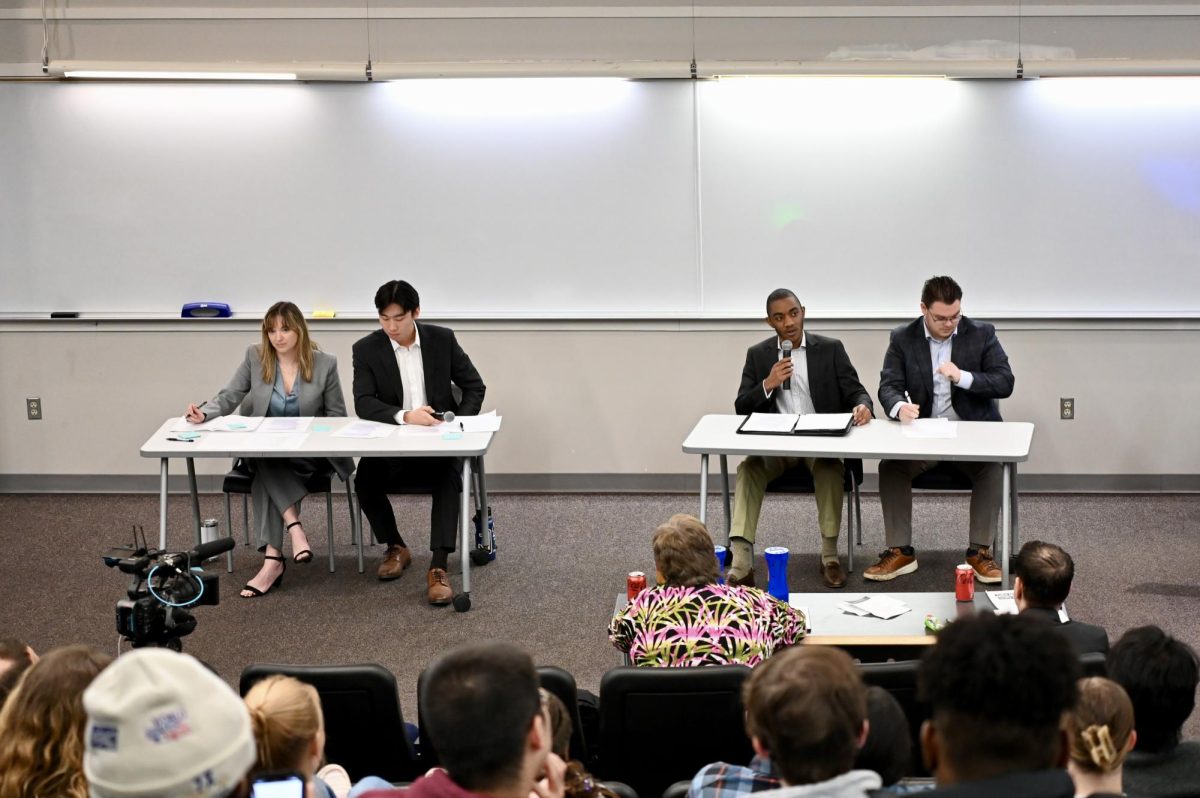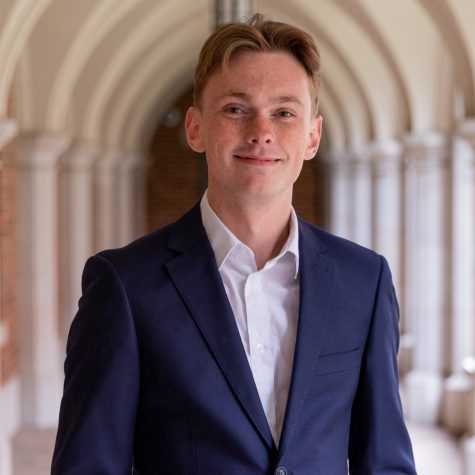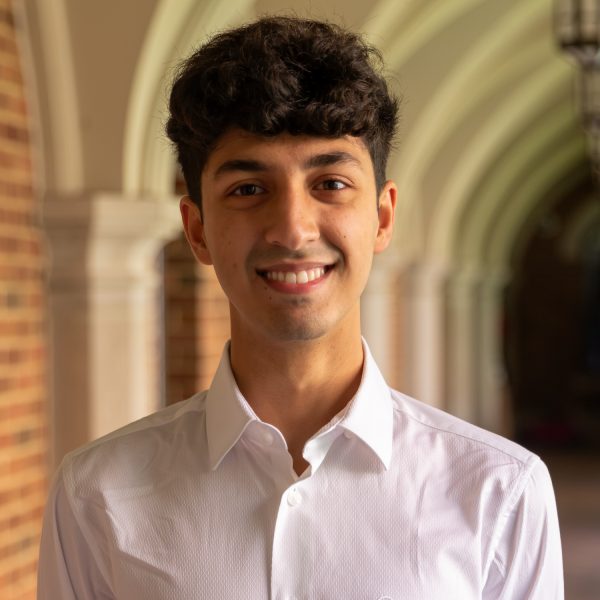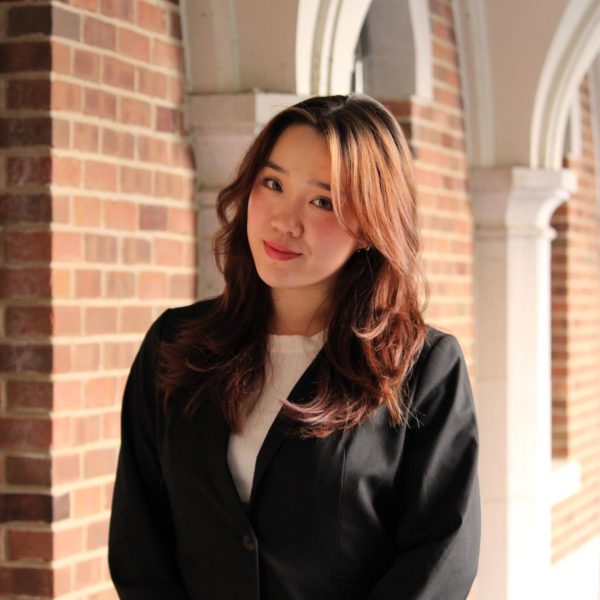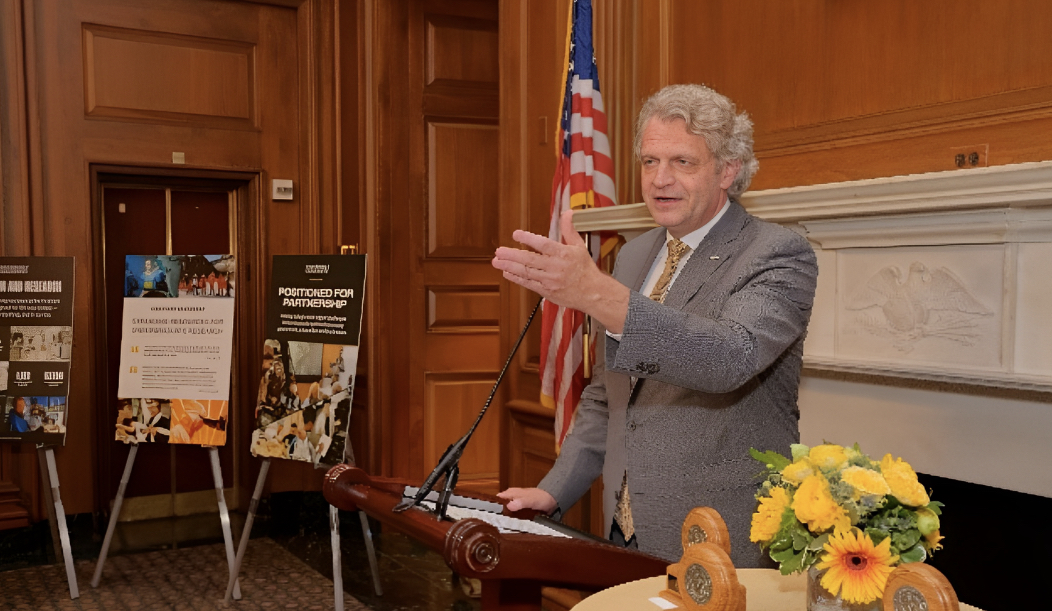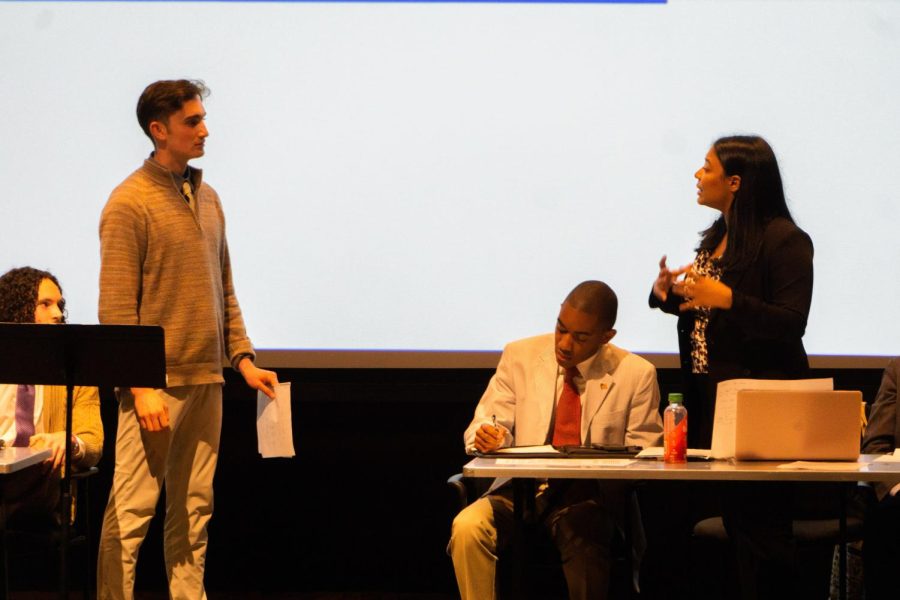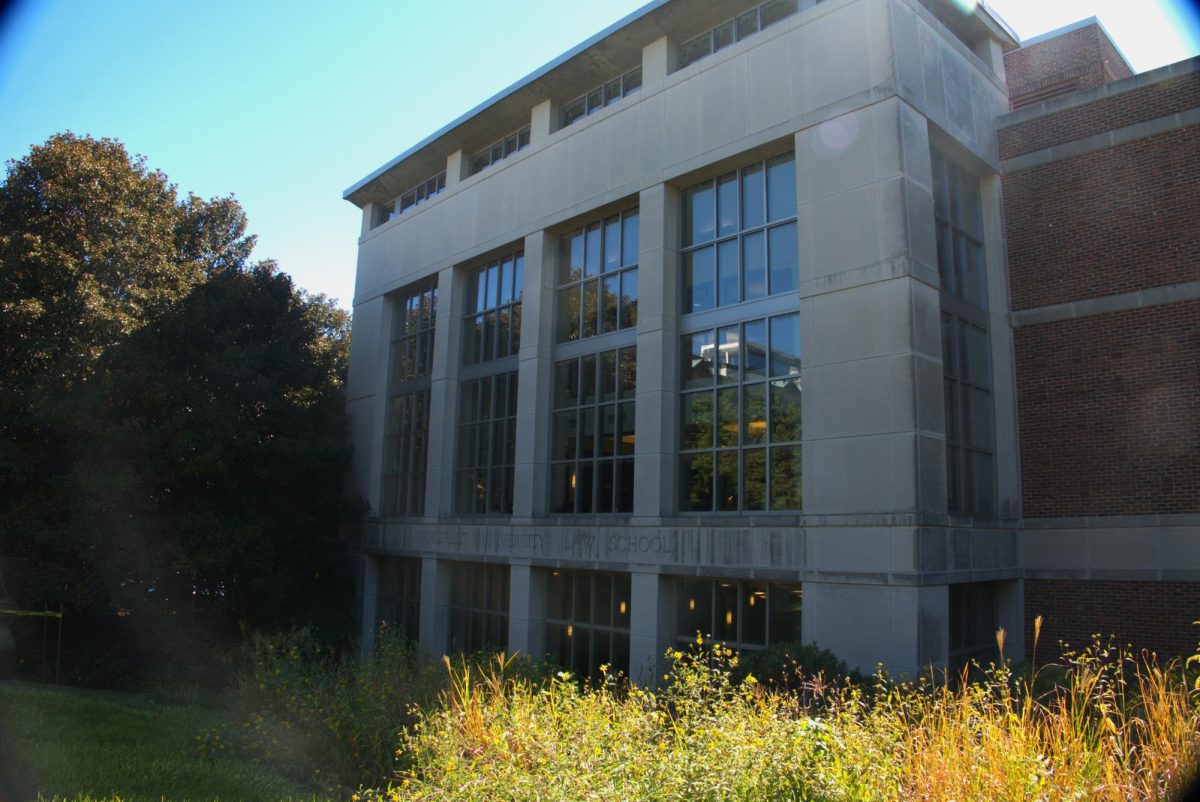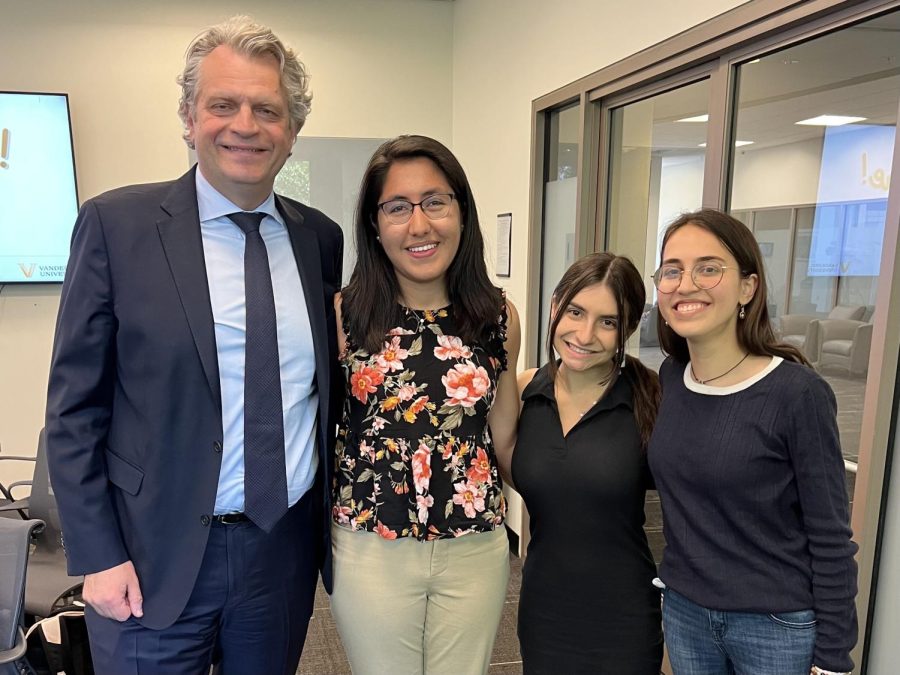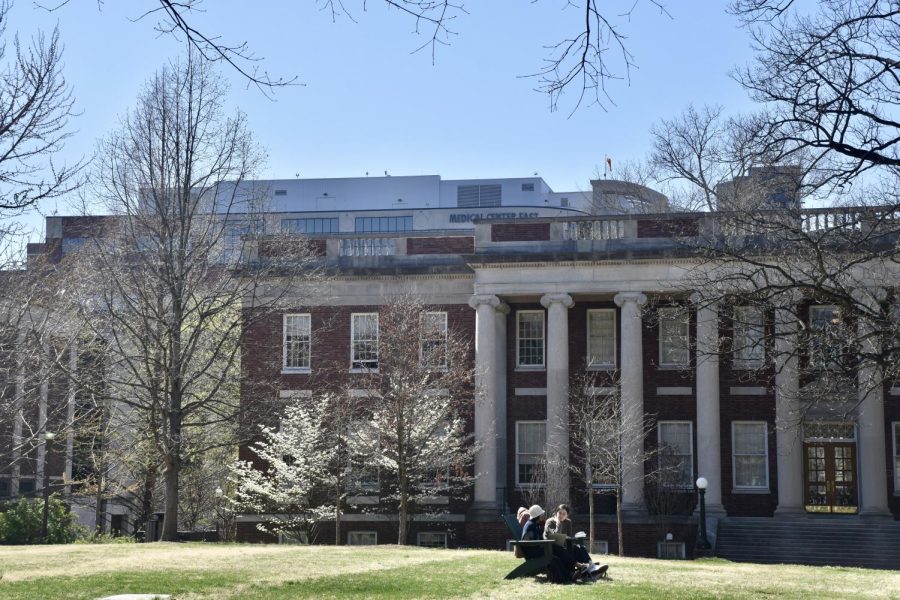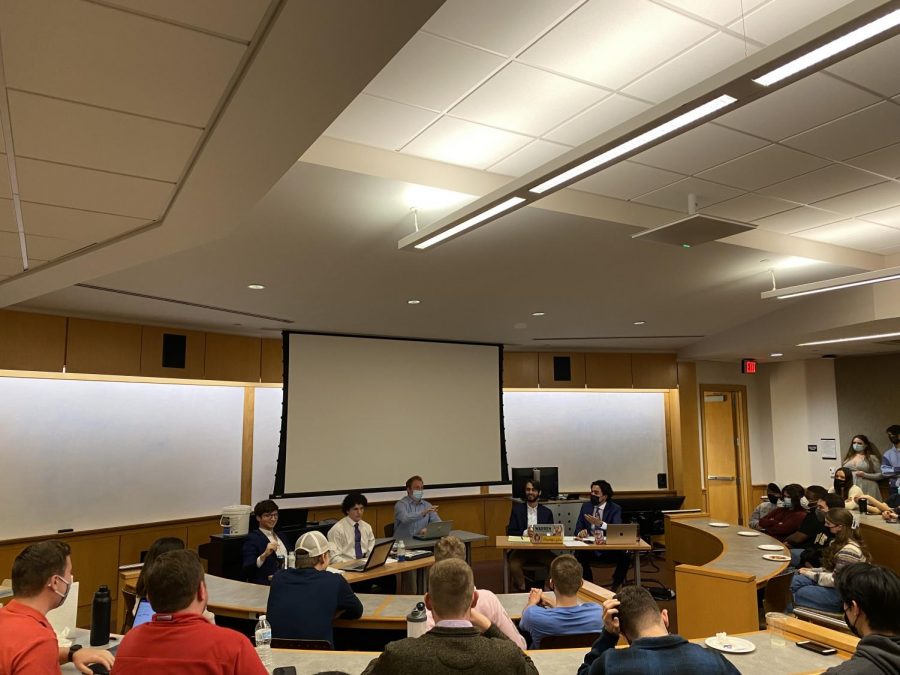Vanderbilt Political Review hosted a Feb. 28 debate on gun control between members of Vanderbilt College Republicans and Vanderbilt College Democrats. The event was the first to feature conversations between VCR and VCD since they last met in October 2021.
VPR Editor-in-Chief Bella Roth, a senior, said gun control was chosen as the topic because it was “interesting, topical, and relevant to a large number of students, not just political science majors.” The debate aimed to educate the Vanderbilt community on the topic of gun control by focusing on several specific policies, including arming teachers and implementing red flag laws.
Organizing a debate
Roth said that she and other VPR members were excited about the opportunity to host the debate.
“As a nonpartisan political organization, VPR is passionate about promoting bipartisan discourse on campus and fostering mutual understanding in an increasingly partisan country,” Roth said. “We are happy to bring these two organizations together for the first time in several years and resume the tradition of VPR hosting debates.”
Unlike previous debates on campus, which have historically been moderated by students, VPR’s event was moderated by two Vanderbilt faculty. John Koch and M.L. Sandoz, both senior lecturers in the Department of Communication Studies, also serve as coaching staff for the Vanderbilt Debate Team. Dialogue Vanderbilt and the Project on Unity and American Democracy also co-hosted a catered reception after the debate.
Koch said he and Sandoz let the students take the lead in planning the event.
“We view our role as providing guidance, such as the format, time limits, ground rules, etc.,” Koch said in an email to The Hustler.
Roth said it “took some convincing” to get participants from both VCD and VCR at the debate.
“There was a little push back from both sides; I think previous events with the organizations have built tension between the two,” Roth said.
VCD previously indicated they were not seeking to debate VCR after conflict arose at previous events.
“Due to the hostile nature of the last debate we hosted between both student organizations, there is no interest among the members of our executive board to participate in this kind of event,” former VCD President Claire Reber, a senior, told The Hustler in January 2023.
Current VCD President Chase Mandell, a senior, declined to comment on whether VCD would be regularly engaging in debates with VCR moving forward. VCD’s debate participants, sophomore Melanie Gerko and junior Andrew Kyung, jointly told The Hustler they were “excited for the opportunity to reopen conversation between the organizations and partake in a productive conversation.”
VCR President Noah Jenkins, a sophomore, debated alongside sophomore George Destino. Jenkins said he and Destino were “feeling good” ahead of the debate.
“Even if we don’t manage to convince many that our position is correct, we look forward to at least introducing our side of the debate to many who have not earnestly heard it before,” Jenkins said.
Opening statements
The hour-long debate began with a statement from Senior Counselor to the Chancellor Darren Reisberg, who said Dialogue Vanderbilt was “very, very proud” to be able to sponsor a debate between VCD and VCR.
“We have a real commitment to debate and dialogue here at Vanderbilt, something that I hadn’t seen at any of the other institutions I’ve been to,” Resiberg said.
Koch then asked the audience to embrace a “democratic attitude” throughout the debate.
“We believe and trust that everyone in the debate this evening, and in the audience, is doing their best to grapple with difficult questions,” Koch said. “None of us have a monopoly on the truth.”
Jenkins delivered an opening statement for VCR that emphasized assessing the efficacy of gun control policies, rather than falling back on surface-level assumptions. He also sought to dispel the notion that conservatives do not see gun violence as a problem.
“Conservatives do wish to offer more than our ‘thoughts and prayers’ to victims of senseless gun violence and more than vacuous allusions to the Second Amendment,” Jenkins said.
Gerko and Kyung delivered a joint opening statement for VCD, proposing a three-pronged approach to gun control involving stricter licensing for firearms, safe storage laws and a national gun registration system. Kyung concluded by emphasizing the human cost of the debate over gun control.
“Our goal is to pave the way and propose solutions for a safer society,” Kyung said.
Balancing safety with liberty
Koch, employing an audible timer to manage the debate, first asked both sides what measures they thought could be implemented to prevent gun violence without infringing on Second Amendment rights.
Kyung noted that rights are “not absolute” and are often constrained by other laws for the common good. Gerko added that both the Tennessee and United States constitutions include language implying an expectation that firearms be well regulated.
Destino emphasized the distinction between preventing gun violence and gun accidents.
“Knowing how to properly store, handle and use a firearm without putting yourself and others at risk is a must,” Destino said.
Koch pressed Destino on whether he condoned any of the three policy proposals the Democrats offered in their opening statement. Both debaters for VCR expressed skepticism that gun laws would deter criminals from breaking the law.
“The idea that passing gun regulation will solve the problem is naive,” Destino said.
Sandoz then moved to the argument that a “good guy with a gun” is the best way to stop gun violence. VCR responded that they thought the narrative was supported by evidence, citing a study by John Lott and David Mustard, the results of which have been disputed.
Kyung responded by pointing out the narrative’s questionable premise.
“If more guns equaled more safety, then the U.S. would be one of the safest countries in the world,” Kyung said.
Gerko added that the recent shooting at a Kansas City Super Bowl parade, which escalated from a physical altercation, served as a counterexample to the narrative. Sandoz noted the disparity between the evidence presented by each side and asked debaters how the audience might reconcile conflicting information. VCR argued that deterrence data is harder to capture, while VCD pointed out that regardless of that question, the effect of the policies they proposed would be to ensure only “good guys” obtain guns in the first place.
Mental health and firearm proliferation
Koch turned the discussion towards arming teachers. Gerko cited a study which found a gunfire accuracy rate of 18% among NYPD officers, arguing that expecting teachers to use guns effectively was silly. The Hustler could not independently locate or confirm the study.
“The only people who should be carrying firearms, especially in a school setting, are those who are trained to use them and whose primary responsibility is to protect the bodily safety of students,” Gerko said.
Destino called the statistic misleading and clarified that arming teachers would occur on a volunteer basis and only after proper training. He also agreed that arming school resource officers would be a better alternative, a point which Koch identified as “potential common ground” between both sides.
Sandoz asked both sides what role mental health evaluations should play in the gun purchasing process. Destino rejected blanket disqualifications, arguing that they would stigmatize individuals with mental illness by labeling them as more violent.
“We run the risk of playing into stereotypes and marginalizing individuals for their mental illness,” Destino said.
In response, VCD turned the argument towards reducing suicide. Kyung cited the National Institute of Health’s finding that 90% of suicide attempts with firearms resulted in death. Sandoz questioned VCD about preventing marginalization; the debaters said trained professionals should decide whether a person was fit to own a gun.
Lastly, Koch then asked if Tennessee should consider red flag laws, allowing temporary confiscation of firearms from individuals deemed a threat.
Gerko answered first, citing the use of such a law in California to prevent 58 mass shootings. Kyung added that red flag laws systems rely on training officials and maintaining a national registry of people owning firearms.
Destino said red flag laws don’t actually solve the “underlying issues,” including domestic violence or mental illness.
Closing remarks and student reactions
Destino reasserted the importance of individual liberties in his closing remarks for VCR, advocating for other solutions to gun violence, like supporting mental health services, reducing socioeconomic disparities and prosecuting criminals.
In VCD’s closing statement, Gerko and Kyung repeated key points of their argument. Gerko said there were proven solutions to prevent gun violence and decried the “good guy with a gun” narrative. Kyung added that reducing guns would reduce suicide and that concerns that criminals might break laws shouldn’t prevent those laws from passing.
“Voting is a right, as is gun ownership. We have regulations for voting, we need to register to vote. I think we should implement similar solutions to gun ownership,” Kyung said.
Brodie Labott, a first-year, said he enjoyed the debate but felt there were “missed points” from both sides.
“My gut reaction for the debate was that there were many points that were well-spoken on, but I thought there was one gap about school resource officers having guns and using that to help reduce violence in schools,” Labott said.
Connor Johnson, a junior, said he had been to debates with Vanderbilt’s debate team, but that this was the first between VCR and VCD he had attended.
“They really emphasized finding common ground, which I really appreciated,” Johnson said.
Koch said there is an interest in more faculty-moderated debates in the future.
“This event demonstrated that it is possible even in partisan contexts to have productive debates, learn from each other, and even find common ground,” Koch said.











